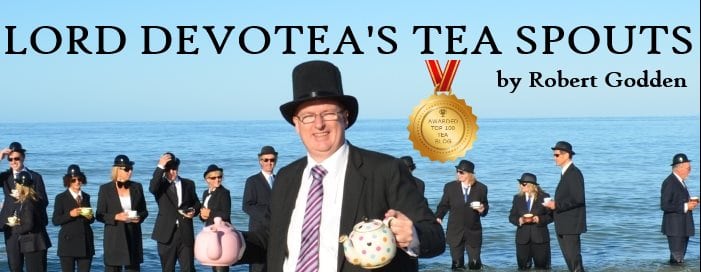When people say “Cheap and…” these days, we usually expect the next word to be “nasty”.
There’s an assumption that the two go together, an assumption that has been conditioned into us by the way retail works.
Unless you are talking specialised areas such as perfume – because all major perfumes are exceptionally cheap to make and most come out of just a few factories – then there is a reasonable expectation that you get what you pay for.
In Thailand a few years ago, we had a mission to find some Converse shoes for one of our sons. And Thailand is a great place for cheap stuff, and also for cheap imitations. Some shoe shops even had them lined up, from the $10 pathetic copies to the $70 real thing, and as one goes along, the improvement in quality is apparent.
But the other expression that turns up is “Cheap and Cheerful”, and quite frankly, it’s a lot better.
Often the ‘cheap’ referred to is in purely monetary terms, whereas in the “Introduction to Economics” comic book I read when I was about 16 years old, capital can also be defined in terms of resources and labour.
So, for example, if you spend three hours preparing a picnic for four, and then go and have a lovely meal in some woodside glen above a glistening lake, it might cost you less in monetary terms, but it’s still capital spent in other areas.
Nevertheless, a picnic is a perfect example of “cheap and cheerful”.
The oddest example I ever heard of this was an interview with Robert Smith of The Cure, who explained that the song “Love Song” from the album “Disintegration” was a cheap and cheerful wedding present to his wife. In this case, “cheerful” is very appropriate, as the rest of the album is songs about death, destruction, heartache and being eaten by giant imaginary spiders. And it might have been cheap in one sense, in that he was writing an album anyway.
When it comes to beverages, though, it’s hard to beat tea for cheap and cheerful. It generally costs a few cents per cup, and is about as cheering as you can get.
The argument that loose leaf tea is hard to make, as I have mentioned many times, is a scandalous lie put about by thieves, con men and charlatans. Nevertheless, it persists.
It’s hard to imagine something that provides more cheer at such a little expenditure of money, labour and resources.
I know ales/beers/wines are probably the other option people might suggest, but the cheer in beer is finite: eventually, you will have drunk so much of it that you will not be feeling very cheerful at all, as Shakespeare* and others have mentioned.
When you make a cuppa, you invest some time in making it, and some money in purchasing, but the ratio of cheer to cost is exceptional, and if you while away an afternoon with good company and good tea, then cheap and cheerful turns out to be a very good deal.
*Strong drink giveth the desire but taketh away the ability etc

Great post @thedevotea I know exactly what you mean by “cheap and cheerful” as often times it is those moments that I have enjoyed the most, those moments that have meant the most to me. Especially a cuppa tea along side friends, family, and the amongst the most beautiful places this world as to offer.
As for “The Cure,” a little Rachel trivia. “The Cure” was the very first band I ever saw live and in concert in their heyday. It was an epic and revolutionary experience for me, that I will never forget. Don’t worry nothing tawdry just an exciting “first” for me.
The cheer in beer is NOT finite. Sometimes there’s a GREAT story to tell.
Er…if you can remember it.
You know you frightnen me sometimes with your concepts.
“The ratio of cheer to cost” is something any good economists might consider but I really like your final answer to it.
Keep on giving us these good deals of yours.
When I see “cheap and…” I immediately think of cheerful. Not nasty at all. Perhaps it means I’m a very cheerful person. Either way, tea certainly contributes to my optimism. Not really all that cheap, not compared to water anyway, but somehow a lot less shallow. Nice post.